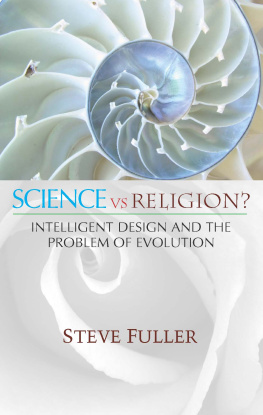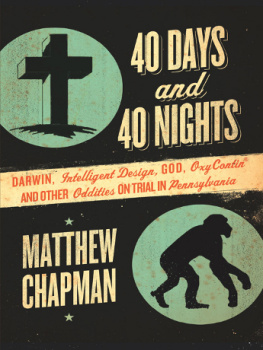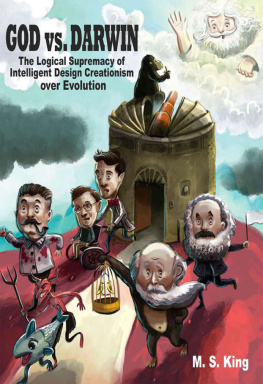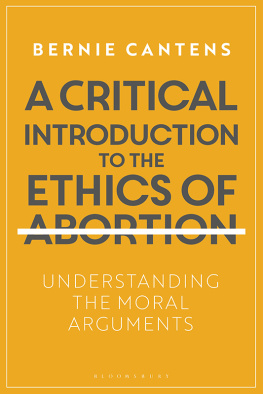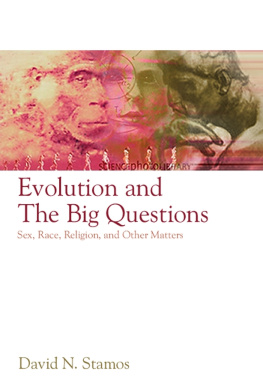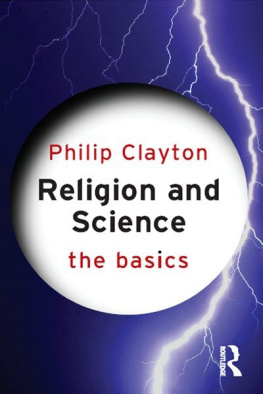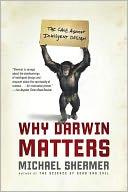Render Unto Darwin
Books by James H. Fetzer
AS AUTHOR
The Evolution of Intelligence: Are Humans the Only Animals with Minds?
Scientific Knowledge: Causation, Explanation, and Corroboration
Computers and Cognition: Why Minds Are Not Machines
Artificial Intelligence: Its Scope and Limits
Philosophy and Cognitive Science
Philosophy of Science
AS CO-AUTHOR
Glossary of Epistemology/Philosophy of Science
Glossary of Cognitive Science
American Assassination
AS EDITOR
Foundations of Philosophy of Science: Recent Developments
Principles of Philosophical Reasoning
Science, Explanation, and Rationality
The Philosophy of Carl G. Hempel
Aspects of Artificial Intelligence
Sociobiology and Epistemology
The Great Zapruder Film Hoax
Epistemology and Cognition
Probability and Causality
Consciousness Evolving
Murder in Dealey Plaza
Assassination Science
AS CO-EDITOR
Program Verification: Fundamental Issues in Computer Science
Philosophy, Language, and Artificial Intelligence
Philosophy, Mind, and Cognitive Inquiry
The New Theory of Reference
Definitions and Definability
Render Unto Darwin
Philosophical Aspects of the
Christian Rights
Crusade Against Science
JAMES H. FETZER

OPEN COURT
Chicago and LaSalle, Illinois
To order books from Open Court, call toll-free 1-800-815-2280, or visit our website at www.opencourtbooks.com.
Open Court Publishing Company is a division of Carus Publishing Company.
Copyright 2007 by Carus Publishing Company
First printing 2007
All rights reserved. No part of this publication may be reproduced, stored in a retrieval system, or transmitted, in any form or by any means, electronic, mechanical, photocopying, recording, or otherwise, without the prior written permission of the publisher, Open Court Publishing Company, a division of Carus Publishing Company, 315 Fifth Street, P.O. Box 300, Peru, Illinois 61354-0300.
Library of Congress Cataloging-in-Publication Data
Fetzer, James H., 1940-
Render unto Darwin : philosophical aspects of the Christian rights crusade against science / James H. Fetzer.
p. cm.
Summary: Examines philosophical issues underlying controversial topics in modern science such as abortion, stem-cell research, human cloning, evolution, creationism, and intelligent design. Also evaluates the merit of different conceptions of morality, coming down in favor of a deonotological ethical standard and against the standards of evangelical Christianity and the political rightProvided by publisher.
Includes bibliographical references and index.
ISBN-13: 978-0-81269-879-4 1. Religion and science.
2. Christian conservatismUnited States 3. Christianity and politicsUnited States 4. United StatesChurch history I. Title.
BL240.3.F48 2007
261.550973dc22
2006036617
For Bret
And he saith unto them, Render therefore unto Caesar the things which are Caesars; and unto God the things which are Gods.
MATTHEW 22:21
Contents
I am a philosopher of science. In this book I look closely at particular issues in religion and politics which have to do with science. These issues arise because of the political aims and activities of the Christian Right.
I have been fascinated by articles of faith since my youth, when I was exposed to the doctrine of the Trinitythe Father, the Son, and the Holy Ghostwhich left me wondering whether Christians believed in one god or three. That proved to be only the first of the puzzles religious belief has posed for me, especially as I became more and more familiar with science.
The chapters that follow address the extent to which science and religion are capable of reconciliation. They examine the case for Creationism in its various forms, as contrasted with evolutionary theory, with particular reference to what counts as genuine science.
I also look into the moral claims of the Christian Right, as these relate to such matters as abortion and stem-cell research. This leads me to compare various theories of morality, and to conclude that only one of these theories is adequate. A deontological conception of morality, requiring that we treat other persons with respect and never merely as means, emerges from my analysis. Applying this theory, I conclude that prohibitions against prostitution, smoking pot, or burning flags are unjustified. Abortion, stem-cell research, and cloning deserve to be regulated, but are not in themselves necessarily immoral.
In my view, the Right is an unholy alliance between those serving the interests of the rich and various religious and moral views which are in themselves of no interest to the rich, but do offer a convenient political strategy for cementing their grip on political power. My conclusion is the rather bleak one that we are witnessing a new, American-style form of fascism which threatens to strangle freedom and democracyin the name of freedom and democracy.
, namely: The Ethics of Belief: Taking Religion out of Public Policy Debates, Bridges 11: 34 (2004); and Computers and Cognition: Why Minds Are Not Machines (Dordrecht: Kluwer, 2002); and, in the Appendix, Transcendent Laws and Empirical Procedures, in N. Rescher, ed., The Limits of Lawfulness (Pittsburgh: University Press of America, 1983), pp. 2532.
Those who would like to pursue the issues involved in accounting for consciousness, cognition, and mentality within an evolutionary framework might like to read my earlier work, The Evolution of Intelligence: Are Humans the Only Animals with Minds? (Chicago: Open Court, 2005). That book, offering a study in the emergence of crucial properties that distinguish Homo sapiens from other animal species, is complementary to this one.
This book, more so than any other of mine, has benefited from collaboration with my editor, David Ramsay Steele, whom I have come to admire for his keen intellect, excellent judgment, and patient manner. Having already published four books with him, it is a great pleasure to formally acknowledge my indebtedness to him.
Next page

